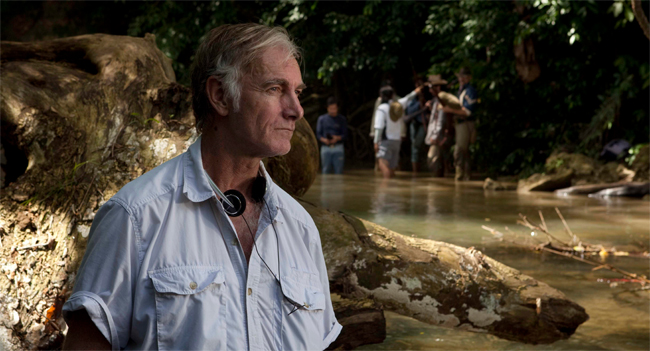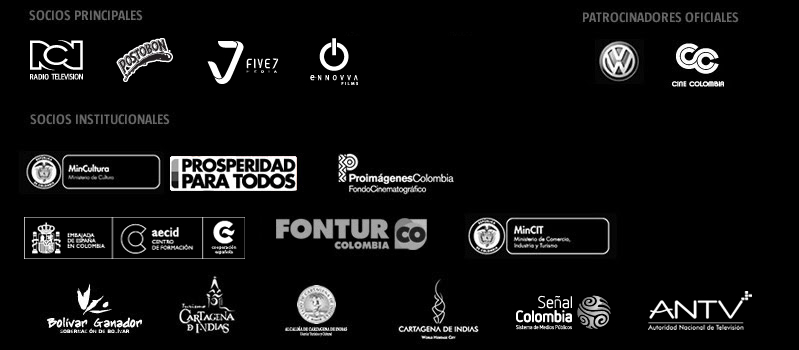|
Jueves 20 febrero 2014
| Dos veces nominado al Oscar, el actor, director y guionista americano, estará en el FICCI 54 con lo mejor de sus películas y un conversatorio en el Salón FICCI |

|
Si con dos palabras quiere definirse el cine de Sayles, estas serían, sin duda, independencia y compromiso. Independencia a la hora de sacar adelante películas lejos de exorbitantes presupuestos y lejos también, de los grandes estudios de Hollywood. Compromiso por retratar el mundo que le ha tocado vivir y la condición humana, con la capacidad de poner al descubierto tanto sus grandezas, como sus miserias.
Autodenominado el abuelo del cine independiente norteamericano, John Sayles completa casi cuarenta años contando historias, sin perder vigencia. Recurre a temas que no son los que más gustan en el cine comercial norteamericano, aquellos que hablan de la otra cara de la moneda del sistema estadounidense: corrupción, inmigración, especulación, explotación, robo, abuso de poder.
Con 21 títulos en su haber como director, 35 como guionista y 29 como actor, entre otros, el 54º Festival Internacional de Cine de Cartagena de Indias –FICCI- presentará una retrospectiva con 10 de sus películas. Dentro de las Presentaciones Especiales del Festival tendremos la posibilidad de ver su más reciente trabajo, Go for Sisters (2013), una película sobre la amistad con el retrato de fondo de la frontera entre México y Estados Unidos. El tema de las fronteras aparece también desde otro ángulo en su película Lone Star (1996), en la que un Sheriff deberá investigar la aparición de un cadáver en el difícil ambiente de un pueblo del desierto poblado por inmigrantes mexicanos. Otros títulos en los que Sayles retrata el contacto de la cultura estadounidense con la latinoamericana son Casa de los Babies (2003) que trata el tema de las adopciones en Sudamerica o Men with Guns (Hombres armados, 1997) donde un médico acomodado se enfrenta a la realidad socio-política y los conflictos armados.
La retrospectiva se completa con otros temas muy del gusto de Sayles. La crudeza del sistema capitalista, desigual y opresor, donde no importa el precio, ni las vidas humanas aparecen en Sunshine State (La tierra prometida, 2002), City of Hope (Ciudad de Esperanza, 1991), Silver City (2004) y Matewan (1987). O la corrupción vista a través del deporte norteamericano por excelencia, el beisbol, en Eight Men Out (Ocho hombres, 1988), para finalizar con The Return of the Secaucus Seven (1980), su debut como director, que habla de viejos sueños y luchas universitarias.
En el cine de Sayles no existen miedos ni tabúes. Sus películas no hablan de un mundo de buenos y malos porque todo ser humano encierra en su interior esas dos partes. Su cine habla más bien de un mundo desigual, en el que unos tienen el poder, el dinero, las armas y las herramientas para tratar de imponerse y doblegar, mientras otros, que aparentemente no cuentan con nada, tienen en sus manos el poder de la organización, la solidaridad o la amistad y la fuerza de los sueños.
Con un conversatorio en el marco del Salon FICCI para hablar de sus experiencias (martes 18 de marzo, a las 3:30 de la tarde), el FICCI acercará al público a este hombre cuyas películas son ejemplos de independencia tan longevos y sólidos que merecen no sólo una retrospectiva o reconocimiento, sino el mayor de los aplausos.
Este programa es realizado con el apoyo de la Embajada de Estados Unidos en Colombia.
IMPORTANTE: Hasta HOY, jueves 20 de febrero estarán abiertas las acreditaciones con descuento para el FICCI 54. Para iniciar su proceso de acreditación puede hacer click AQUÍ.
Thursday, February 20, 2014
| Two time, Oscar-nominated American actor, director and screenwriter John Sayles will be at the 54th FICCI along with the very best of his films and will be part of a roundtable discussion at Salón FICCI |
If Sayles' films could be described in two words, they would be independence and commitment. Independence in his choice of movies far from the exorbitant budgets and giant Hollywood studios, commitment to a portrayal of the world as he knows it and of the human condition, uncovering its greatness as well as its misery.
The self-proclaimed grandfather of North American cinema, John Sayles has never lost his relevance in his almost forty years of storytelling. His films' recurring themes are not Hollywood's most popular subjects - they are the other face of the U.S. system: corruption, immigration, speculation, exploitation, theft and abuse of power. The recurrent themes explore an unfair world in which some have the power, money, weapons and tools to beat down and impose their will on others, while others, seemingly worthless, hold in their hands the power of organization, solidarity, friendship and dreams.
The 54th International Film Festival of Cartagena de Indias (FICCI) will be presenting a retrospective of ten of Sayles' 21 films as a director, 35 as a screenwriter and 29 as an actor. Within the festival's Special Presentations section, we'll have the opportunity to see his most recent film Go for Sisters (2013), a film about friendship back-dropped by the reality of life on the U.S.-Mexico border, along with Lone Star (1996), a story about the border from a different angle, in which a sheriff must investigate a cadaver that shows up in a desert town populated by Mexican immigrants. Other films by Sayles that discuss U.S-Latin American relations are Casa de los Babies (2003) about South American adoptions and Men with Guns (1997) about a well-off doctor forced to confront socio-political reality and armed conflict.
FICCI will complete the retrospective with a few other classic Sayles' films. Sunshine State (2002), City of Hope (1991), Silver City (2004) and Matewan (1987) about the harsh reality of capitalism: unequal and oppressive, where neither monetary nor human costs matter; corruption within North America's number one sport, baseball, in Eight Men Out (1988); and finally The Return of the Secaucus Seven (1980), Sayles' directorial debut, about old dreams and university student's struggles.
Sayles will discuss his experiences on Tuesday, March 18th at 3:30pm as part of Salon FICCI. Here, the public will have a chance to get to know a man whose films have been such long-standing and solid examples of independent film that they deserve not only a single retrospective or award but the loudest of applause.
This program has been made possible thanks to the support of the Embassy of the United States in Colombia.
IMPORTANT: Accreditation Discounts are available through TODAY, Thursday, February 20. To start the accreditation process please click HERE. |


